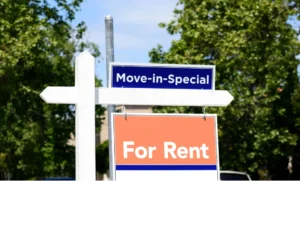5 Tips For Buying An Investment Property in NYC
 In major cities like New York, buying an investment property is life-changing. You’re not only spending a great deal of money, but you’re also exposing yourself to the risks associated with investing.
In major cities like New York, buying an investment property is life-changing. You’re not only spending a great deal of money, but you’re also exposing yourself to the risks associated with investing.
Suppose you’re planning to purchase a rental property in NYC. In that case, it pays to know where to look and how to choose a potentially high-yielding asset. First-time investors must do their homework by studying the market situation and learning which elements to focus on or avoid before buying NYC homes.
Here’s how to draw in a steady income from an investment property in the Big Apple.
1. Study the NYC real estate market
Despite being one of the most expensive cities, the real estate market in New York has displayed a strong performance for the first quarter of 2022, except for the luxury sub-market. A recent report stated that NYC’s real estate market prefers smaller apartments, reasonably-priced larger units, and properties in popular areas, including Greenwich Villages and Park Slope. (1)
Simply put, understanding local real estate reports gives you an idea about the investment climate. Consult a local real estate expert for valuable advice and read more about NYC’s real estate market trends for 2022, especially if you’re a newbie investor.
2. Location is key but it’s not everything
After gaining enough knowledge of the market, determine where investment properties may become lucrative in the future. Some may want to stay safe and invest in neighborhoods such as the Upper West Side because they’re strategically located. That said, the demand for rentals is always high in these communities. The downside is that investment properties in these areas come with hefty costs.
If you can’t afford the insanely high asset prices in these zones, consider outlying areas with property appreciation potential. There’s a massive gap between the prices of rental homes in NYC neighborhoods, and purchasing in regions outside the traditional investment sites allows you to buy low and sell high.
3. Watch out for new playing fields
Determine the up-and-coming real estate investment hotspots. A prospective investor can check the city’s development plan or map for an uptick in business investments, transportation, offices, and schools.
As far as New York City is concerned, these areas are often the go-to investment areas for investors with limited budgets:
- Bronx
- Queens
- Brooklyn
- Staten Island
- George (2)
Living spaces in these areas have yet to peak, yet they’re conveniently located near public transportation. If investing, be prepared for a lengthier investment return and higher turnover rates. On the flipside, maintenance and repair costs in the boroughs listed above are way cheaper than in the traditional investment neighborhoods.
4. Be wary of investing in co-ops
Most investment properties in NYC are either condominiums or condos and co-ops. First-time investors may find them attractive prospects because they’re cheaper than condominiums. (3)
When buying a co-op, you’re purchasing shares in a corporation or the apartment building itself. Unfortunately, co-ops are not ideal investments because they have restrictions that don’t allow for raising additional revenues. Most co-ops enable investors to stay only for two years, and subletting isn’t typically allowed, which is bad news for investors who plan on turning the investment into a rental. Condominiums remain more investor-friendly, as they don’t have such limitations. (3)
5. Know the risks of investing
There are several ways to make money from real estate, each with its upsides and risks. Before buying your first property investment in NYC, consider all the expenses you’d have to spend outside the sales price and make a realistic projection of how much rental fees you can earn.
If purchasing a rental property through a mortgage, don’t rely on the rental fees to cover it regularly. It’s advisable to have other income streams to have enough money to cover the cost in emergencies. Several instances may cause problems in the real estate sector. For example, your tenants may not be able to pay on time because of severe financial difficulties. Or your building may suffer from a structural problem and won’t be able to accommodate tenants for a certain period. (4)
Before finalizing the buying process, it’s also recommended that investors hire a lawyer to avoid legal problems down the road. You may also validate the property documents, as they’re available publicly through the County Clerk’s Office. Ask about the salient points of New York’s landlord and tenant laws to ensure you’re not breaking any regulations while drafting the rental agreement. (5)
Conclusion
Commercial properties located in the metropolis are desirable to tenants, but they come with downsides. Apart from high selling prices, these properties are also being snagged quickly as the NYC market is highly competitive. If you’re a first-time investor, consider the tips discussed above to minimize the risks of leaving too much money on the table. It would be best to take your time before spending your hard-earned cash and act swiftly when you know you’ve found a great deal.

References
- “New York Real Estate Market Remains A Juggernaut In the First Quarter”, Source: https://www.forbes.com/sites/fredpeters/2022/04/03/q1-2022-in-nyc-real-estate-new-york-market-remains-a-juggernaut/?sh=35d51cad7612
- “Buying Investment Property in NYC: What You Need To Know For 2022”, Source: https://homevestorsfranchise.com/blog/northeast/2021/10/buying-investment-property-in-nyc-what-you-need-to-know-for-2020/
- “Want to buy an investment apartment to rent out? Here’s what you need to know”, Source: https://www.brickunderground.com/buy/buying-an-investment-apartment-nyc
- “Three Ways to Invest in New York City Real Estate”, Source: https://www.investopedia.com/articles/investing/123115/3-ways-invest-new-york-city-real-estate.asp
- “New York State Attorney General FAQs About Real Estate”, Source: https://ag.ny.gov/real-property/faqs-about-real-estate













 Accessibility
Accessibility